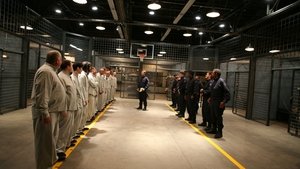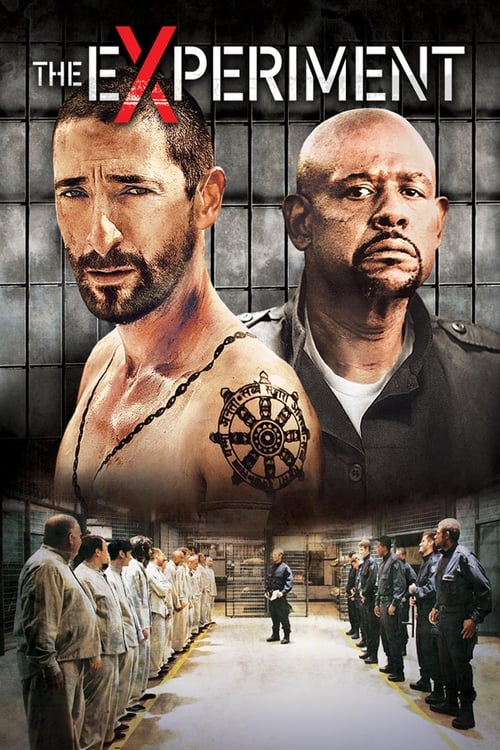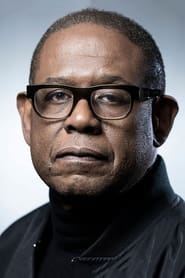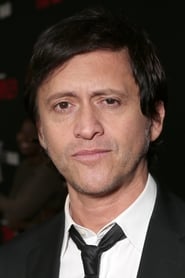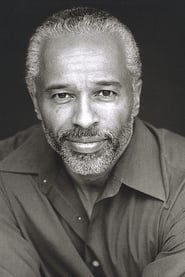Cast
View AllAdrien Brody
as Travis
Cam Gigandet
as Chase
Forest Whitaker
as Barris
Maggie Grace
as Kelly
Clifton Collins Jr.
as Nix
Fisher Stevens
as Archaleta
Damien Leake
as Govenor
Ethan Cohn
as Benji
Travis Fimmel
as Helweg
David Banner
as Bosch
Rod Maiorano
as Rex
Rachel O'Meara
as Female Administrator
Jeanne Hopson
as Gertrude
Jack Mishler
as Henry
Jason Lew
as Oscar
Crew
Director
- Paul T. Scheuring
Writer
- Paul T. Scheuring
- Mario Giordano
Producer
- Marty Adelstein
- Bill Johnson
- Maggie Monteith
- Scott Nemes
- Dawn Olmstead
- Paul T. Scheuring
- Jeanette Buerling-Milio
Reviews
LastCaress1972
Decent enough if unremarkable English-language take on Oliver Hirschbiegels superior Das Experiment, which itself was adapted from a novel (Black Box) which was inspired by a real experiment carried out at Stanford University in 1971. It was funded by the US Navy, and it was abandoned after only six days, when it went tits-up.
The story: a bunch of people are interviewed, and 24 are selected to participate in a social experiment: they are to be coached out to a camera-ed up detention centre, where eight will be selected to play the role of prison guards while the remaining sixteen will adopt the role of prisoners. The experiment is scheduled to last for fourteen days, at the end of which the participants will receive their pay: fourteen grand each. There are rules though, and if any of them are broken a red light will come on signalling the end of the experiment, and no one will be paid: The "prisoners" may not speak to the "guards" unless spoken to first. The "prisoners" are to be given three meals per day, but they must finish their plates. The "Prisoners" must participate in one hour of physical activity every day. If the "prisoners" break any of the rules or play up in any other way, they are to be punished "commensurably" within 30 minutes. There is to be no actual violence committed (odd one, this, as the violence erupts long before the red light eventually comes on. Perhaps those conducting the tests considered the acts "commensurable" to the acts of the prisoners. I dunno). If anyone wants out and quits, it's over for everyone. Anyway, our hero is "prisoner" Adrien Brody (King Kong, Predators) as a pacifist hoping to get some quick cash so's he can follow his latest squeeze out to India where they can "find themselves" and whatnot, and our villain is "guard" Forest Whittaker (Phonebooth, The Last King of Scotland), an initially shy, gently-demeanored man who still lives with his parents, and who befriends Brody at the interview stage, but who allows himself to be sucked utterly into his role as guard, and who is subsequently absolutely corrupted by his absolute "power". Within a matter of days.
The two leads - Oscar winners, both - are clearly slumming it, but they by no means ham it up or chew the scenery. The whole thing is done and dusted in a brisk ninety minutes and as a result there's little time whilst watching to consider the shortcomings or flaws until later (who are these people conducting this experiment, anyway? Why the oppressive, dangerous rule-set? Why don't they leap in as soon as the violence rears up? Why are apparently straight men ready to rape each other like 40-year lifers, when they've only been in there 5 days? Even if the would-be rapist is gay, can't he hold off for a bloody week before resorting to sexual assault? Why is an actor of clearly Hispanic/Mexican descent playing a white supremacist?). It's a decent enough if forgettable way to knock out an hour-and-a-half.
Aug 11, 2013
Thematic Analysis
As a dramatic work, The Experiment examines complex human relationships and emotional struggles against the backdrop of contemporary challenges that mirror our own experiences. The character development particularly stands out, offering viewers a chance to reflect on their own life journeys.
Director Paul T. Scheuring brings their distinctive visual style to this film, continuing their exploration of themes seen in their previous works while adding new elements. Their approach to character development and emotional depth creates a viewing experience that rewards close attention.
Released in 2010, the film exists within a cultural context that continues to evolve with our understanding of its themes. Its reception demonstrates the diverse reactions to its artistic choices and its place in cinema history.
Did You Know?
- The production of The Experiment took approximately 25 months from pre-production to final cut.
- With a budget of $21.8 million, the film represented a significant investment in bringing this story to the screen.
- The final cut of the film runs for 96 minutes, though the director's initial assembly was reportedly 153 minutes long.
- The cast underwent specialized training for 3 weeks before filming began.
- The screenplay went through 11 major revisions before the final shooting script was approved.
- The film contains approximately 1787 individual shots.
Historical Context
- In 2010, when this film is released:
- Smartphones and social media had transformed daily life and communication.
- Climate change awareness was becoming a central global concern.
- Streaming platforms were disrupting traditional distribution models and changing how audiences consumed films.
How This Film Stands Out
While The Experiment shares thematic elements with other films in its genre, it distinguishes itself through its unique approach to storytelling, visual style, and character development.
Unlike Identity, which focuses more on action than character development, The Experiment subverts genre expectations by exploring its themes with greater nuance.
While films like Highway and Hysteria explore similar territory, The Experiment stands apart through its deeper exploration of its central themes and more complex characterization.
This film's unique contribution to cinema lies in its thoughtful balance of entertainment value and thematic depth, making it a valuable addition to its genre.
Details
- Release Date: July 15, 2010
- Runtime: 1h 36m
- Budget: $21,800,000
